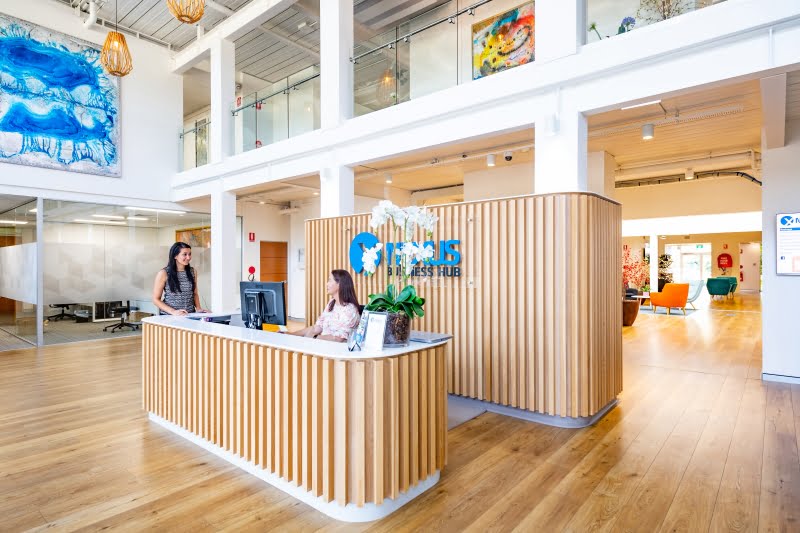
Whether you’re a startup or an established business, you can lose that original enthusiasm you had if you don’t deliberately cultivate a dynamic, innovative culture. Learning the ways of creative startup companies could be the key to reviving your team and injecting the original passion you had back into your business. These strategies could help your business achieve the fast-paced, purpose-driven intensity of top startups.
Need a premium office space to house your growing business? Talk to Nexus today.
Cultivate a questioning culture
Startup teams have a distinct quality: they ask questions. The questioning culture is associated with boldness, and a willingness to reinvent, repurpose, or even to turn the status quo on its head. A questioning culture means your team is always thinking about how to refine and simplify processes to make things run smarter and leaner. This questioning attitude is crucial to the out-of-the-box thinking that helps you move ahead in the game.
You can encourage a questioning culture by example. As a leader or business owner, ask questions and follow through with the answer. Invite your teams to get involved. Follow through with the solution and look further. Ask how you can continue to improve and evolve. Create an open environment of collaboration and communication to support your questioning culture. Seek out physical tools that can help you achieve this, such as an open office space with reduced physical barriers.
Be fearless about change
Startups operate in an environment of constant change and disruption, so be fearless about embracing change and show your team that breaking the old rules can be healthy. Look for new trends and ways to innovate, introduce flexibility, and improve. A fearless culture (when it comes to change) is one that embraces the dynamism it takes to discover new products, services, and processes to move ahead of competitors. Organisations that embrace change are proactive instead of reactive to changing market conditions.
Another advantage of being fearless is your business can easily attract employees with the same dynamism and creativity you need to thrive as a business. Look for ways to embrace change; whether it’s adding a new innovative product, or shaking up stultifying working arrangements. Switching to shared office spaces, for example, could help you reduce boundaries and support a culture that embraces change.
Recognise the role of mistakes
Startups recognise mistakes are part of the innovation process. Instead of treating mistakes harshly, they view them as a necessary element on the road to completion and success. Refining a product, service, or a process may not happen overnight. It can take weeks or longer in a trial-and-error phase before you’re satisfied with the end result.
Give your team, projects, and development phases enough room to make mistakes. Allow enough space for error and exceeding deadlines, and recognise you won’t always get it right every time. See mistakes as a stepping stone to eventual success.
Create an environment of open collaboration
The traditional closed office environment with individual offices can create barriers that work against innovation and creativity. This could be the reason why many enterprises are looking towards coworking and open-office environments to help their teams thrive. Start by reviewing your physical office setting. Is it conducive to collaboration and teamwork? Switching to shared office space could help you foster innovative teamwork, by breaking down barriers. Using zones, like quiet areas, ideation spaces, recreation rooms, and meeting rooms could also support your teams in achieving that startup dynamism you’re looking for.
At the same time, seek IT tools to foster open collaboration. Tools like Slack and other collaboration platforms can be invaluable for supporting your team with the virtual infrastructure they need to work effectively together.
Focus on learning and test the results
Focusing on learning is central to startups, which learn and adapt or die. However, your learning-centric culture should be grounded in metrics. This means you create an environment that encourages your team to try and learn new things while measuring the impact with metrics and data.
Metrics and data create a feedback system, enabling you to work out how well something has worked, whether it’s a new process, product iteration, or a new service. With these objective measures of performance, you can constantly test and validate how well you’re doing and what you need to change. In startups, where time is of the essence, quickly testing what you’ve learned lets your business adjust and survive.
With the daily grind and constant challenges of the business environment, it can be hard to maintain the intensity and passion you might have once had. Understanding how startups think and behave and deliberately cultivating this in your business enables you to shake things up when you’ve become set in daily routines and old ways of doing things. By changing the way you and your team approach things, you can bring back the creativity, innovation, and dynamism you need for success.
NexusHub is an established, trusted provider offering affordable yet premium office spaces for small businesses. Whether you’re a startup or rapidly scaling business, we have the right office solution to support your business’s growth requirements. Explore our website for more information or contact us today for a discussion.





